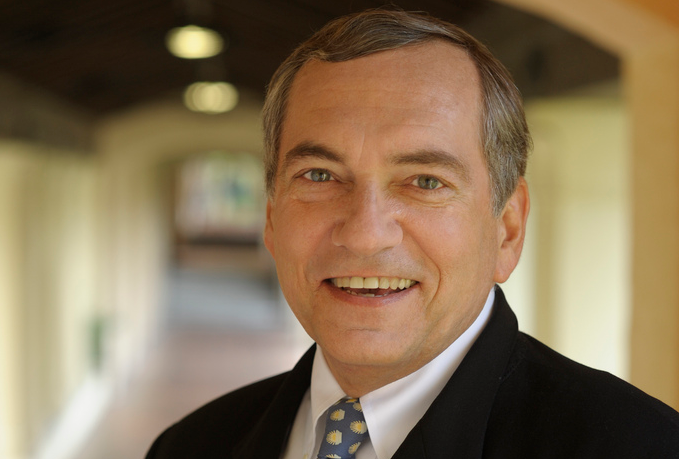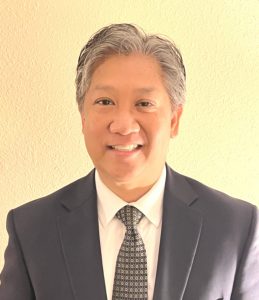Three weeks ago, the faculty of the College of Arts & Sciences (A&S) voted to censure President Duncan due to two recent decisions: the creation of the position of Vice President for Planning and Dean of the College, and the creation of the College of Professional Studies (CPS).
Last week, The Sandspur published a brief article about the censure entitled “A&S Faculty Censures President Duncan.” Below are the viewpoints of the three affected parties, A&S, the newly formed CPS, and President Duncan.
Arts & Sciences (A&S)
To see the resolution passed by the A&S faculty, please see the last issue.
“There was a situation that occurred in the spring at an April faculty meeting. President Duncan made an announcement about a new college here at Rollins,” said Assistant Professor of Psychology Jennifer Queen. “Many of the faculty members in what was remaining of the College of Arts and Sciences felt that they had been circumvented… It is the opinion of A&S that by going around the governing structure, [Duncan created] a problem.”
Queen assured that “there is nothing secretive going on here.” The two changes were made solely by the administration, and many members of the A&S faculty are unhappy with the decision. “I believe this has put other kinds of accreditation at risk because other agencies require that these types of changes go through the governance process. Essentially, by fixing this crisis, he has in my mind created another,” she added.
Queen, along with CPS faculty member Associate Professor of Education Scott Hewitt, spoke to the Student Government Association (SGA) on Oct. 5, at the request of a student who attended the A&S faculty meeting when the resolution to censure President Duncan was passed.
Among other issues, members of SGA were most concerned about the effect of the change on the students. Although Queen did mention her personal concerns about the possibility of a change in general education requirements in the future as well as the potential lack of student representation on new committees created from the faculty of CPS, she believes that this is an issue between the faculty and the administration. “This is an A&S faculty censuring a member of its own. You should care about how it affects you as students. If the change is as seamless as it is supposed to be, you all should keep on trucking. If student life problems arise, then you have a right to be concerned.”
While the A&S faculty has reservations about how these two decisions were made, Queen stated that this is an issue “between the faculty and the administration. [The A&S faculty] are dedicated with working with this administration to make the best Rollins possible.”
College of Professional Studies
As a member of the new CPS faculty, Dr. Don Rogers, professor of international business, believes that the addition of the new college was the right thing to do.
Concerning the censure by the A&S faculty, Rogers stated that “obviously, coming from a CPS perspective, I don’t think President Duncan’s action justified censure. I realize that a lot of A&S faculty felt they should have been involved in his decision. In reality, I don’t believe creating members of his administrative team belongs to A&S faculty or creating a new school belongs to the faculty of another school. The design and structure of the institution are an administrative decision, not a faculty decision.”
“The faculty of CPS was consulted, and he [President Duncan] did listen and did change things based on faculty concerns,” said Rogers. “Most of the faculty in CPS thought it was a good decision. Some people had some reservations about some things. But at least 88 percent of the faculty agreed with each proposition.”
“Yes, I feel [the creation of CPS] was necessary but it was a bigger picture than that,” Rogers stated. “Accreditation was a driving factor at the time. However, lots of changes are going on in liberal arts colleges that have business programs. Rollins is one little piece of a national trend.”
Rogers pointed out that many liberal arts colleges, including the University of Richmond and Birmingham Southern, just went through rough separations between their liberal arts schools and business departments. In addition, many liberal arts colleges have been having greater financial trouble. Nationally, there were “almost twice as many seats as students to fill those seats. Liberal arts colleges are having to cope with problems that liberal arts colleges were not meant to deal with.”
Further, he commented, “In order to attract students away from less expensive state universities, a lot of liberal arts colleges are adding professional programs. Students are no longer simply looking for an education; they want a great education, but also preparation for a job after they graduate.”
“Is the Rollins experience worth one hundred thousand dollars?” Rogers asked. “You will see both more efforts to apply a liberal arts education; most of the sciences can do it easily. It is going to be harder for some areas in the humanities and social sciences, but it is going to happen. It will be easier for some than it will be for others. Long-term, it will prove to be a smart strategic move. Change is always hard. And when the change is not something you originated, it is even harder.”
President Duncan
President Duncan was informed of the official warning from the A&S faculty aft er its September meeting by faculty president, Jill Jones, assistant professor in the English department. In response to the censure, Duncan stated, “I disagree with the faculty saying that I violated the bylaws. [The] bylaws give me the authority to make new
organization structure. I would have been violating the bylaws by forcing the faculty to change the curriculum to appease the new business department qualifications.”
The faculty had over 18 months to reach a compromise regarding the changes mandated by The Association to Advance Collegiate Schools of
Business (AACSB). “Not compromising on International Business (INB) would have had substantial consequences to Crummer and INB.”
Duncan did bring his new plan for the new college to what would become the faculty of CPS. “I did talk to all of the faculty in the departments that were moved and they enthusiastically supported it.”
Regarding the concerns about the new VP position, Duncan affirmed that it not only seemed to make sense, as 33 out of 35 of our peer and aspirant schools have a similar position, but also was best suited for the time. “Laurie not becoming provost allowed us to work with an existing administrator.”
Because Joyner already worked for Rollins, the expense of bringing in someone new to fill this position was not necessary. “A full budget was prepared before the change and
continues to be available.”
In addition to the funds, there was a “longer term assumption that attention to student affairs would result in significantly higher retention. One third of students start [at Rollins] and do not graduate in six years. For whatever reason they leave is a failure for all of us.” While the faculty did not vote on the new VP position, a report from the Student Affairs Articulation Committee “was given to the faculty recommending a Vice President of Academic Affairs position. It is a mischaracterization of [the] issue to say the faculty had no say.”
According to Duncan, the faculty and administration need to “work through the concern of the faculty that applied liberal arts should not be the mission of the school. We have to be attentive to students’ interests, not just for an education but for a job after they graduate. Blending liberal arts and pre-professional studies is an excellent place to start.” With this mindset, Duncan contended that CPS is “responding
to student needs.”
After discussing the faculty’s concerns, Duncan stood behind his decisions. “The vote
of censure is sometimes the repercussion of making difficult decisions.” He also affirmed that “we are a student-centered institution that needs to focus on student needs [which] was at the heart of both decisions.”
“I am saddened that these issues have become divisive among the faculty, but the faculty needed to express their unhappiness,” Duncan said. Regardless of the current disagreements, Duncan asserts, “we are committed to moving Rollins forward from where we are.”














Be First to Comment